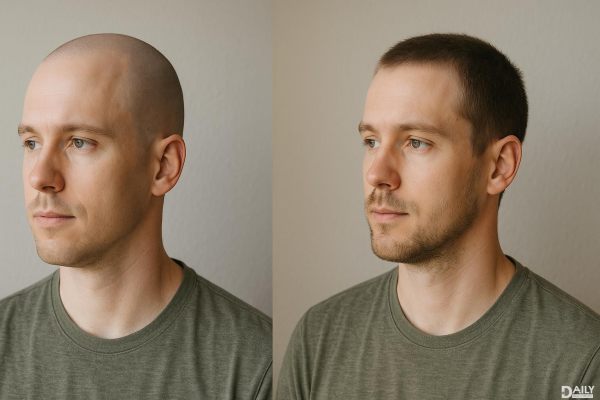If you're lying in bed staring at the ceiling at 2 a.m., you're definitely not alone. Sleep struggles are the universal late-night party nobody actually wants an invite to. But here's the kicker: while we all know sleep is crucial, actually achieving it can feel like trying to solve a Rubik's Cube in the dark. The good news? There are science-backed ways to finally get the rest you deserve—no counting sheep required.
The Science Behind Sleepless Nights
Sleep isn't just about closing your eyes and drifting off—it's a complex biological process influenced by everything from brain chemistry to lifestyle habits. Your body runs on an internal clock called the circadian rhythm, which regulates when you feel sleepy and when you're alert. When this rhythm gets thrown off—say, by late-night scrolling or an erratic work schedule—your brain gets mixed signals, leaving you wide awake when you should be snoozing. Then there's cortisol, the hormone that keeps you on high alert. Stress, anxiety, or even that third cup of coffee too late in the day can spike cortisol levels, essentially telling your brain, "Hey, now’s not the time to power down." Meanwhile, melatonin, the hormone responsible for making you drowsy, gets sidelined, leaving you stuck in a frustrating cycle of exhaustion without relief.
Your Bedroom Might Be the Problem
Think your sleep struggles are all in your head? Think again. Your sleep environment plays a huge role in how easily you drift off. A room that's too warm, too bright, or too noisy can sabotage your efforts before you even hit the pillow. Temperature matters more than you might realize. Your body naturally cools down as you fall asleep, so a hot room can keep you tossing and turning. Experts recommend keeping your bedroom between 60-67°F (15-19°C) for optimal sleep. Light is another sneaky sleep thief. Even small amounts of blue light from phones, laptops, or streetlights can trick your brain into thinking it's daytime, suppressing melatonin production. Blackout curtains and a strict "no screens an hour before bed" rule can make a world of difference. And let’s talk about noise—whether it's a snoring partner, traffic outside, or the neighbor’s dog barking at 3 a.m., unexpected sounds can jolt you out of sleep or prevent you from reaching deep, restorative stages. White noise machines or earplugs can be game-changers if silence isn’t an option.
Habits That Hijack Your Sleep
You might not realize it, but some of your daily routines could be stealthily stealing your sleep. That afternoon latte? It could still be kicking around in your system at bedtime. Caffeine has a half-life of about five hours, meaning if you drink coffee at 4 p.m., half of it is still active in your body at 9 p.m. Alcohol is another culprit. While a nightcap might make you feel drowsy, it actually disrupts your sleep cycle, leading to fragmented, less restorative rest. And then there's the dreaded "revenge bedtime procrastination"—that phenomenon where you stay up way too late binge-watching or scrolling just to reclaim some me-time. The problem? You're robbing yourself of precious sleep, leaving you even more exhausted the next day. Breaking this cycle requires setting firm boundaries with yourself (and your devices).
How to Actually Fall Asleep Faster
Ready to stop the endless tossing and turning? Here’s the good stuff—actionable tips to help you finally get the sleep you’ve been dreaming of. First, establish a wind-down routine. Just like kids need a bedtime ritual, adults benefit from a consistent pre-sleep routine. Whether it’s reading a book, taking a warm bath, or doing light stretches, find what signals to your brain that it’s time to unwind. Next, practice the 4-7-8 breathing technique: inhale for 4 seconds, hold for 7, exhale for 8. This method activates your parasympathetic nervous system, helping you shift from "fight or flight" to "rest and digest." If your mind races with to-do lists, try journaling before bed. Dumping your thoughts onto paper can prevent them from swirling in your head all night. And if you’ve been lying awake for more than 20 minutes, get up. Seriously. Staying in bed while frustrated trains your brain to associate your mattress with wakefulness. Instead, move to a dimly lit space and do something calming until you feel sleepy again.
When to Seek Professional Help
Sometimes, despite your best efforts, sleep remains elusive. If you’ve tried adjusting your habits and environment but still struggle with chronic insomnia, excessive daytime fatigue, or other sleep disturbances, it might be time to consult a specialist. Conditions like sleep apnea, restless leg syndrome, or hormonal imbalances could be at play—and these often require medical intervention. A sleep study can uncover underlying issues, and treatments like cognitive behavioral therapy for insomnia (CBT-I) have been proven highly effective for long-term sleep improvement. Don’t resign yourself to exhaustion—help is out there.
Sleep isn’t a luxury; it’s a necessity. And while fixing your sleep might take some trial and error, the payoff—better mood, sharper focus, and improved overall health—is worth the effort. So tonight, instead of stressing over sleep, try implementing one or two of these strategies. Your future well-rested self will thank you.
























